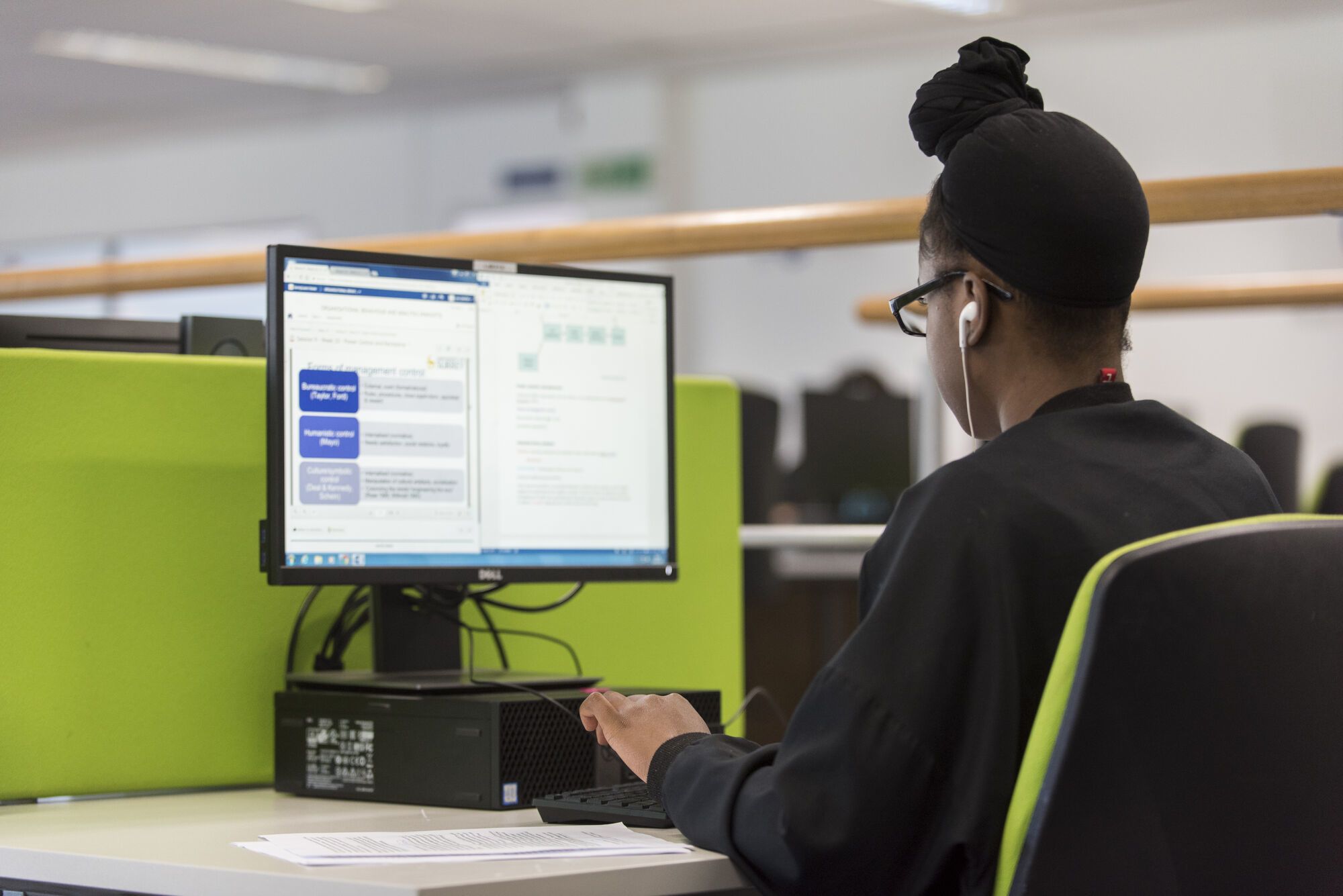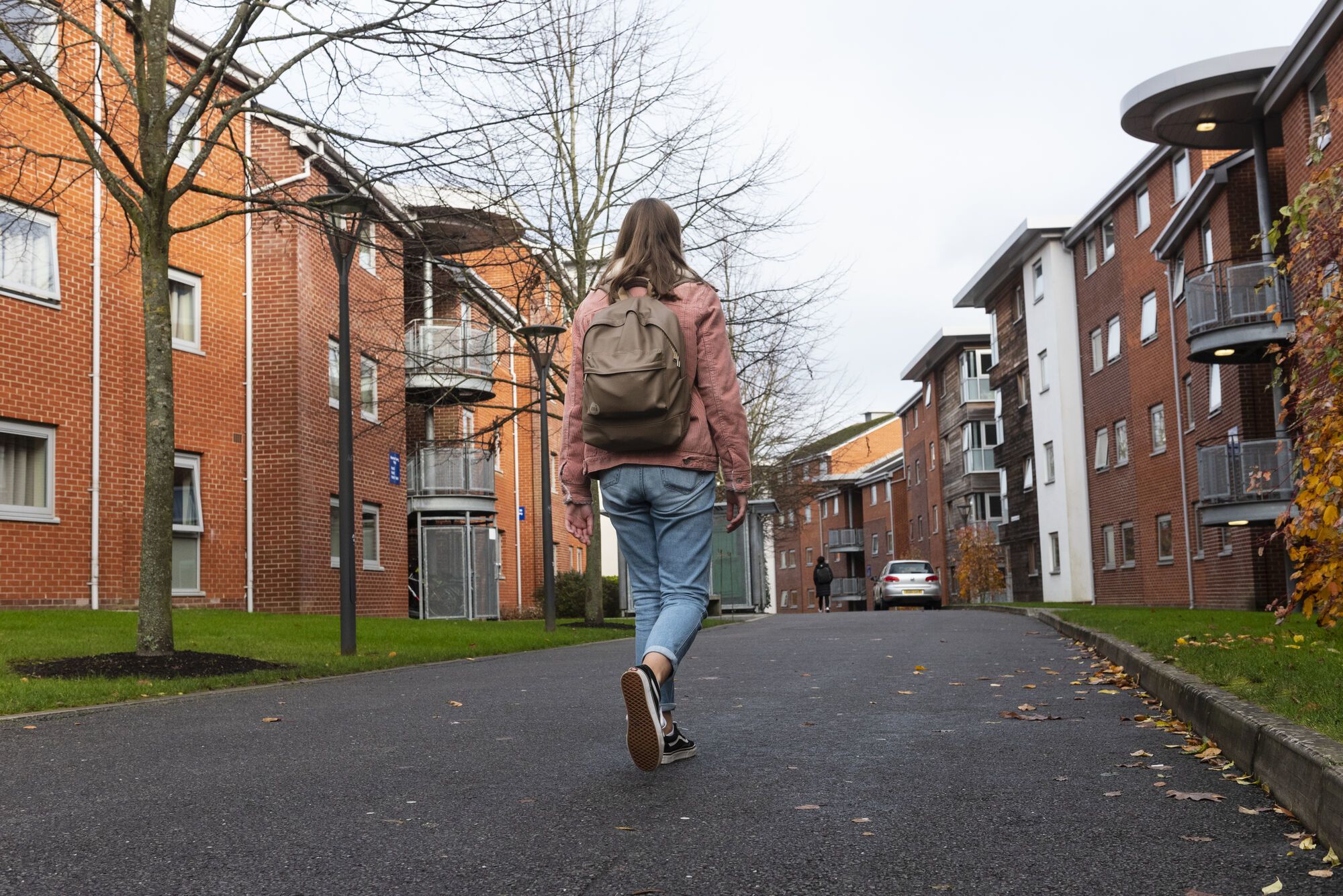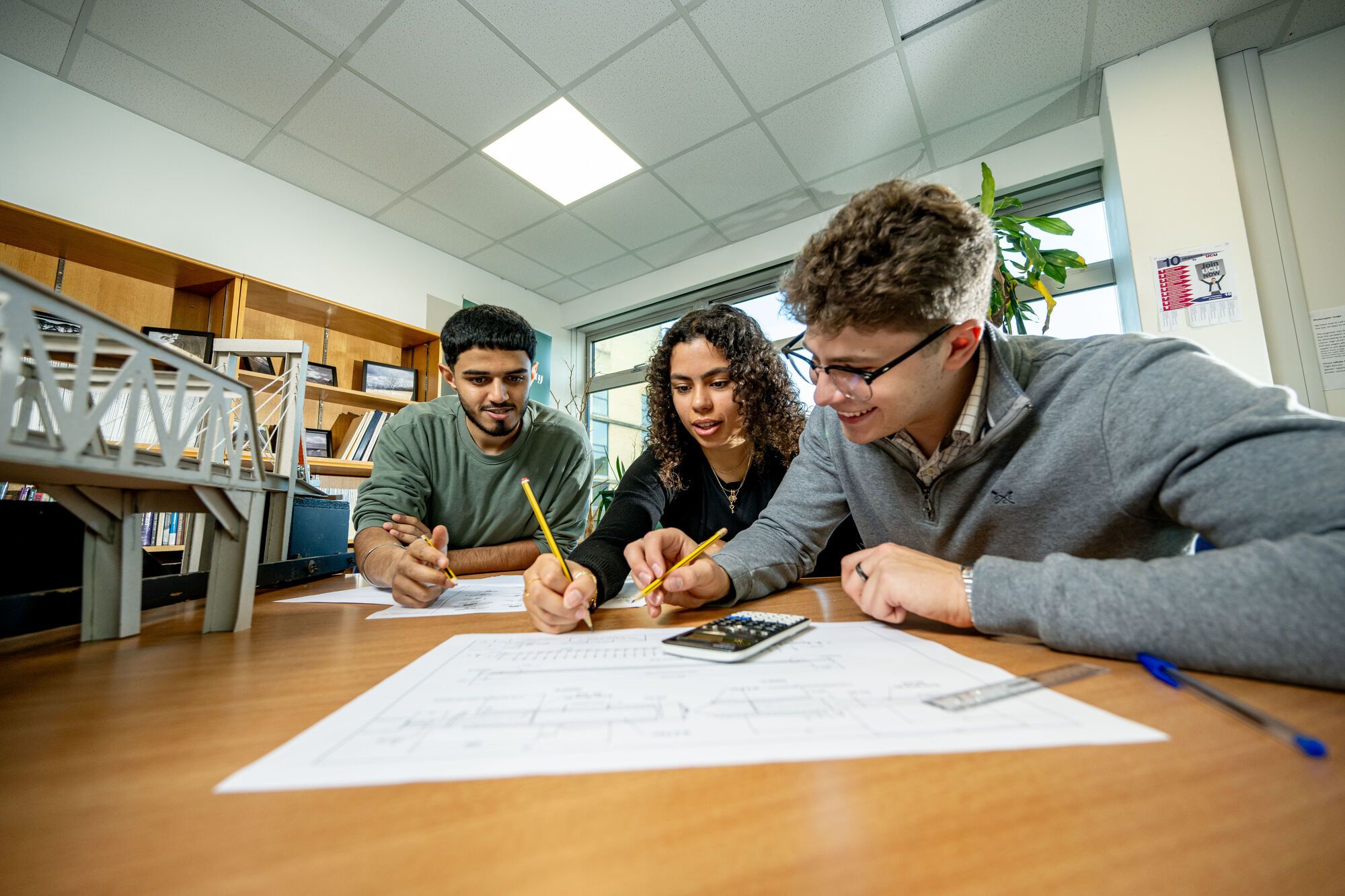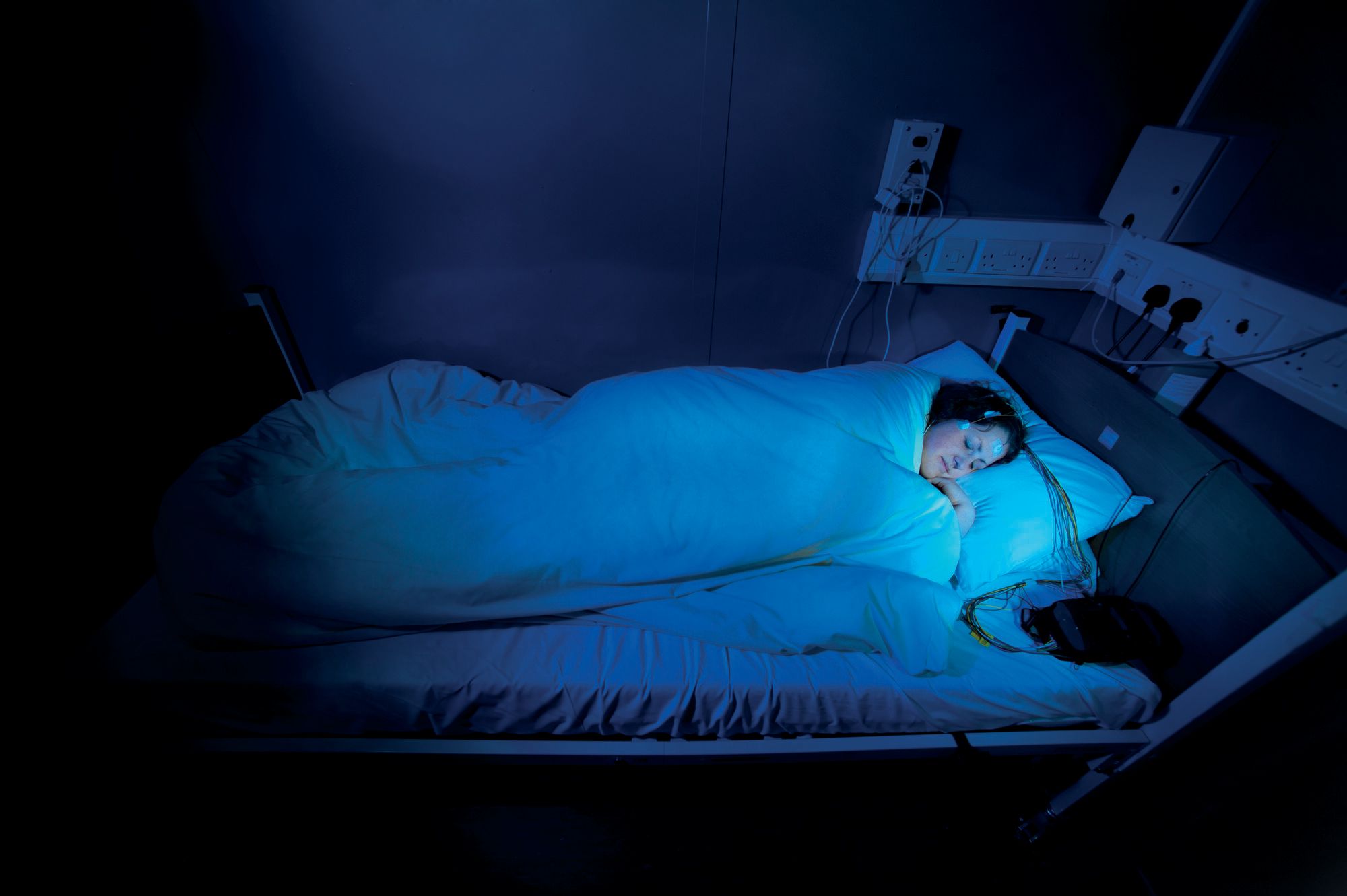Let’s Talk: Sleep

World Sleep Day is a global event that takes place every year to raise awareness about the importance of good sleep and its impact on health. Taking place on Friday 14 March, the theme for this #WorldSleepDay is Make Sleep Health a Priority.
Gabi Hayward is a second year International Tourism and Transport BSc student, who has also been involved in the Nightline service as a training officer since joining Surrey. Outside of her studies, she enjoys climbing, photography and binge watching Star Wars. She is also a big fan of a good night's sleep and shares her tips for improving your sleep habits.
In today's fast-paced world, where we're constantly juggling deadlines, exams, social lives and part-time jobs, sleep often becomes the first casualty of our busy schedules. However, the one thing we often neglect, could be the secret to better grades, improved mental health, overall success at University, and in our lives.
As university students, late-night study sessions, all nighters and binge-watching your favourite TV series has become normalised, but at what cost?
Enter World Sleep Day - a global event that emphasises the importance of sleep and its impact on our health.






Cognitive function
At university, we're constantly taking in new information - lectures, research, assignment, exams, you name it. But did you know that sleep plays a key role in how we process and retain all of this knowledge?
Sleep isn't just for resting, its where your brain consolidates memories and strengthens neural connections.
Studies show that students who prioritise sleep have better cognitive performance, better decision-making skills and improved critical thinking abilities. So, sleep isn't optional, its essential.
Mental health
University life can be a rollercoaster of emotions. If, like me, you are balancing social pressure, academic demands and life decisions, this can create significant stress. You may find yourself feeling more anxious, overwhelmed and emotionally drained, the lack of sleep may be playing a part.
By prioritising sleep, you're not just giving your body a chance to rest, you are also helping your mind recharge. Better sleep can result in improved mood regulation and stronger ability to handle stress, helping you stay mentally sharp and resilient in the toughest of times.
Productivity and time management - 'less is more'
It's easy to believe that staying up late and working through the night will get you ahead, especially when your mates are spamming the group chat at 3am, but sleep deprivation actually slows you down.
When you're sleep deprived, your brain works harder to focus, leading to mistakes and reduced productivity. By getting enough sleep, you'll be able to work smarter, not harder. You'll be more productive during your waking hours (not falling asleep in those wretched 9am classes) allowing you to get more done in less time.
Maintaining your social life
Sleep deprivation doesn't just affect your academic performance it can also impact your relationships. Lack of sleep can make you irritable, emotionally distant or even affect your ability to communicate effectively (my course mates can vouch, that this happens to me, whoops!) As a student, you're having to navigate relationships with friends, partners, roommates and professors, but when you are running on empty, it's harder to be the best version of yourself in those interactions.
One of the biggest struggles students can face is balancing late-night clubbing with early morning classes. A night out with friends can be a way to unwind, with many partying until the club closes, it may leave you groggy and struggling to stay awake in class the next day (assuming you can actually get out of bed).
How to improve your sleep
I know I've just written loads about the benefits of sleep, and I'm not saying you should stop clubbing or quit working on your assignments. Instead, consider a 'end of day' for working on assignments, to ensure that you have ample time to rest and get to sleep. Instead of going out several times a week to the club for example, perhaps choose days that work with later lectures, or changing work shifts to the day of clubbing rather than the day after.
Here are some tips for a good night's sleep:
- Establish regular bedtime and waking up
- Exercise regularly, but not right before bed
- Find a comfortable sleep temperature setting and keep the room well ventilated
- Block out as much distracting noise (I'm in love with loop sleep earbuds) and eliminate as much light as possible
- Reserve your bed for sleep and... other activities, avoid using it for to do assignments/ work.
This World Sleep Day, take a step back and assess your sleep habits. Prioritising sleep can make all the difference in our academic performance, your health and your university experience.
So, here's your reminder: when you wake up tomorrow, set an intention to prioritise your sleep. It might just be the best decision you can make for both your grades and overall wellbeing.
Support is available
If you are experiencing issues surrounding sleep, there are multiple avenues of support available to you.
The free-to-use Wisdom App also has lots of helpful tools to help with sleep hygiene. Simply download the Wisdom App from the App Store or Google Play and enter the code MHA268152 to get started.
If you find that your problems with sleep are affecting your day-to-day life or causing you distress, it may be a good idea to call NHS 111 or book an appointment with your GP.
Our new service ThriveWell are a mental health and emotional wellbeing service which can help with a range of low level issues including anxiety, low mood and exam stress. You can contact ThriveWell via email thrivewell@surrey.ac.uk.
If you feel you require a higher level of support for your mental health, The Centre for Wellbeing can support you with a range of issues through counselling or support from a Mental Health Practitioner. You can contact us today via email and book a free, confidential appointment with a wellbeing adviser or counsellor.

For nearly 20 years, the Surrey Sleep Research Centre at the University of Surrey has been home to a forward-thinking team of physiologists, molecular biologists, neuroscientists, psychologists and engineers searching for the answers to why, and how, we sleep.


